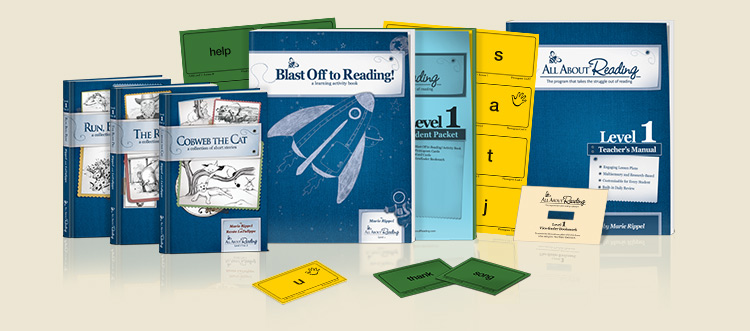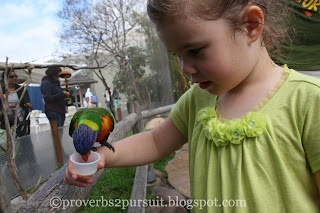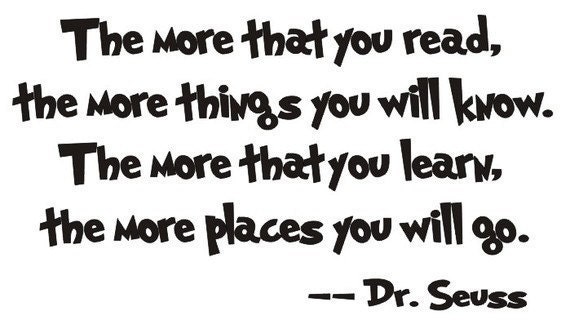"You may grow old and trembling in your anatomies, you may lie awake at night listening to the disorder of your veins, you may miss your only love, you may see the world about you devastated by evil lunatics, or know your honour trampled in the sewers of baser minds. There is only one thing for it then — to learn. Learn why the world wags and what wags it. That is the only thing which the mind can never exhaust, never alienate, never be tortured by, never fear or distrust, and never dream of regretting. Learning is the only thing for you. Look what a lot of things there are to learn..."
T.H. White, The Once and Future King
So we really would fall into the "eclectic unschooler" category of homeschoolers going by how things have happened this past year for Pre-K/K4. If you remember our great plans, I will tell you now we did not complete even half of them. Some of this was due to SC racing past where the curriculum was in math, necessitating a change mid-year, and some of this was because some of the choices were just too much for her at four. Also, I did not strictly enforce the routine I had set up at the beginning of the year and allowed lazy mornings that moved into chores, playtime and errands, and then forgotten lessons for weeks at a time. We also did quite a bit of traveling, which I feel is hugely important at SC's age, but I think I could have handled it better rather than completely eschewing school. On the bright side, SC hasn't suffered from a very relaxed Pre-K/K4 year and testing has shown she is still years ahead in both math and reading. In fact, she seems to just absorb information as she goes along.
This year, though I love the lazy time we get to spend together, we have to step up the routine a little. I honestly think SC would manage some of her meltdowns (one day I will post about these) a bit better if we had a more routine schedule, and I am really excited about doing kindergarten with her this year (though much of what we will be doing is solidly 1st grade). She is very excited, too, and keeps eyeing the box (see picture above) I have keept everything corralled in as I work on the plans. By the way, in case you think I am nuts, not everything in that box will be completed this year, but in some cases is was cheaper overall to buy a "package" than just what we might complete this year.
Also, SC will be continuing to attend the preschool she was at as they have added a twice-per-week "bridge" kindergarten class. Though academically she will be past most of what they are learning, the experiences (like "book character day" and other themed days) cannot be replicated well in a one-child home (in my opinion), and there are some things that she will learn (like the Pledge of Allegiance) that I probably wouldn't think to teach if going at it solely on my own. In the future I may have to get one of those books that lists out things like this. So, that means, our homeschooling schedule for the fall currently looks like this:
M: 8am - 12pm
T: 8am-9am
W: 8am - 1pm (including lunch break)
R: 8am-8am
F: 8am - 12pm
Sa: 9am - 11am
I could probably cram everything into M/W/F but I wanted to leave time for us to go on field trips and have park days, so AC and I agreed Saturday morning would be an okay time to get some schooling in. I have also purposely scheduled science for Saturday morning so AC can do it with us. I have also added one language arts activity on T/R mornings before our out-of-the-home kindergarten class.
Finally, without further ado, here are our plans for K5/1st:
BIBLE
After a friend posted a link to Telling God's Story, I knew I had found the perfect study for our family. From Olive Branch Books' website, the program is described as one that "treats the Bible as a unified, exciting, true story with Jesus as the most important character." YES! This is my problem with story-based or thematic studies, because I feel they minimize Jesus and what Jesus did. They are important to the Bible, but only when the Bible is taken as a whole, with the climax of the story being Jesus. If you are at all interested in this, author Peter Enns writes a Parents' Guide that is a quick, easy read that describes the program and how he will follow the classical education model in developing this twelve-year study. The first year of the study, which is what we will be doing, is focused on "Meeting Jesus," and what a wonderful place to start when telling God's story.
LANGUAGE ARTS
Since this is a "real" school year (though still not actually required by the state of Texas), I wanted to find something more than just a mix of random handwriting and phonics programs with a few read-alouds thrown in. Though math seems to really be SC's thing, mine is reading and literature. I am really excited that I heard about the Junior Great Books "Read-Aloud" curriculum. Even thought it is typically used in a group setting (which may pose a problem if we stick with it in later years), I think it will be a good, easy introduction for SC into some great literature (short stories and poetry), as well as the process of discussing what is read. We will spread out the lessons so that each story takes two weeks, and do the "Sailing Ship Series" during the fall and the "Dragon Series" next spring, and then move along to the other two "Read-Aloud" series next year.
To go along with this I have also found a program from the Center for Gifted Education called Jacob's Ladder, which (at this level) takes picture book stories and helps guide kids through "ladders" of reading comprehension. I am sort-of doubling up between this and the Junior Great Books when it comes to reading, but each program has its own areas of strength, and the reading choices in Jacob's Ladder are such that as SC develops her reading skills she may be able to read the selections on her own and then work through the comprehension.
Finally, though SC has tested at the level of someone 6.8 years in reading, she still struggles when it comes to sounding out new words and will typically just shrug her shoulders in hopes that I or AC will just tell her the word, which she then commits to memory. This year, in an attempt to give her the tools to boost her reading confidence, we are going to be trying All About Reading Level 1. I am actually pretty excited about this program too, as I have heard great things about it.
We will supplement when we feel like it with Explode the Code because SC likes it, but it won't be something I schedule into our regular schedule.
To go along with All About Reading we will also be using All About Spelling Level 1, though I am still unsure how to schedule these together. I have read that some people start AAR and then later start AAS, but others seem to do them simultaneously.
We are still working slowly on A Reason for Handwriting level A, though that is due more to the fact that it is something to be done five days per week and we have only been schooling three days (when we stick to a schedule at all) rather than SC not wanting to or lacking the fine motor skills. In fact, she writes daily when she makes "cards" for AC and I, or doing other schoolwork. We will continue level A this fall (and hope we can get it done daily) and then move on to level B when we get there.
 Another thing we will add in is some time working on writing, and specifically creating a narrative. I saw WriteShop Primary at the Homeschool Book Fair, but there was just so much extra stuff that wasn't really writing that I decided against it. So, I am sort-of modifying the Draw-Write-Now program to take the pictures, allowing SC to draw them as part of her "publication" (as well as practice following precise instructions), but then using that picture to create a story. We will start by just copying the "handwriting" portion, and then build on that, brainstorming characters, plot, and making sure there is a beginning, middle and end. We did the first lesson this summer as a trial and SC kept asking to get back to "Happy Mrs. Chicken."
Another thing we will add in is some time working on writing, and specifically creating a narrative. I saw WriteShop Primary at the Homeschool Book Fair, but there was just so much extra stuff that wasn't really writing that I decided against it. So, I am sort-of modifying the Draw-Write-Now program to take the pictures, allowing SC to draw them as part of her "publication" (as well as practice following precise instructions), but then using that picture to create a story. We will start by just copying the "handwriting" portion, and then build on that, brainstorming characters, plot, and making sure there is a beginning, middle and end. We did the first lesson this summer as a trial and SC kept asking to get back to "Happy Mrs. Chicken."Finally, as SC has been manipulating words and loves that they have classifications, I have decided to add in some light grammar once a week. We will be reading Grammar-Land, the first third of Primary Language Lessons, and using the Critical Thinking Company's Language Smarts level B as a supplement. I don't expect 100% mastery in this area, but I think she will enjoy it.
For our current list of prospective read-aloud books, check out this late summer post.
HISTORY
We started using the History Odyssey "Ancients" Level 1 last fall and I absolutely loved it. However, it was just too much work for SC, and I really wasn't prepared to do all the activities (and how much time it was taking) last year. This year, I have planned three forty-minute sessions during the week, which should be ample time to complete everything. We will probably start back at the beginning, as we only made it to week three last fall before shelving it.
MATH
We started Singapore Primary Mathematics level 1A at the end of last spring when we realized Math-U-See was not a good fit, and my hope over the summer was that we would be ready to start 1B for this fall. However, we have been having a fun summer, and though we have done some math, we are not ready for 1B yet. So, we will finish 1A first and then start on 1B. However, I must say that this program is working very well with us and where SC refused to use the manipulatives to do the work for Math-U-See, she loves the other ways that are taught in Singapore (like using a number line). We have also purchased some magnetic foam counters to use on the whiteboard and she has to come up and move them around to "show" me what she has been learning. They have been a wonderful purchase!
We will be doing more of the Challenging Word Problems book, which we have not really touched, along with Process Skills in Problem Solving level 1. We will also be starting up Life of Fred Apples, reading one lesson per week for "fun."
We will continue to work on Lollipop Logic books, plus Connections: Activities for Deductive Thinking once per week.
SCIENCE
Last year I bought Apologia's Exploring Creation with Astronomy to try, and it was just too demanding for SC, even using the Junior Notebooking Journal. We shelved it before we even finished the first week (when it asked for her to create a mnemonic phrase to memorize the order of the planets). I still think it will be a bit much for her this year, but I discovered a set of "change" themed units by the Center for Gifted Education that are K-1 level and look perfect. There are three units of twelve lessons each, which will be perfect for our year. First we will do Survive and Thrive, which covers life science; then we will do Water Works, which covers physical science; finally we will finish up with How the Sun Makes Our Day, the Earth science unit. Hopefully this will be a good transition into the Apologia Astronomy next year. Also, we did get a membership to the Perot Museum, and have many field trips planned for this year already, as well as to the nearby zoo.
SPANISH
MUSIC / PHYSICAL EDUCATION / ART
SC started piano lessons last fall, but struggled with "waiting for the other kids to catch up" because she picked up what the instructor was teaching so quickly. We tried moving to private lessons, but it was with a new instructor who just could not handle SC and her mobility. After waiting all through the spring semester for the original instructor to still not have space, she recommended another teacher and this one is very good with SC. We went for a few trial lessons over the summer and are now waiting expectantly for lessons to start back up at the end of August.
For physical education, SC will be attending gymnastics, swimming lessons (her favorite), and dance class twice per week. I am also trying to institute a "walk-the-dog" ritual in the morning (more for my physical education than hers), but it won't happen until it is no longer over 100 degrees!
While we will not be doing formal "art" instruction this year, our Bible program includes many art history studies/projects, as does the History Odyssey program. She will be creating art with the Draw.Write.Now books to accompany her writing, as well as at other random times throughout our weeks for her own personal reason (she likes to make cards for people). Also, I have a number of Dover coloring books that cover the history of art and some of the "great" artists, and we will utilize these in conjunction with various other subjects and read-alouds.
I realize this seems like quite a bit, but it really does fit into the schedule outlined above (I will do a more thorough post in a couple of weeks as to what our days will actually look like). The only thing I haven't included here are the audiobooks (read-alouds) that we will be doing thrice a week, but I have written a separate post about that. We are also going to finish off our week on Saturday mornings by having a traditional British elevenses and listening to some classical music.
What does your new school year look like? Have you used any of these programs, and did you love them/hate them? Leave a comment and let me know!
I am also linking up with the 5th Annual "Not Back-to-School" Blog Hop from iHomeschool Network.





















